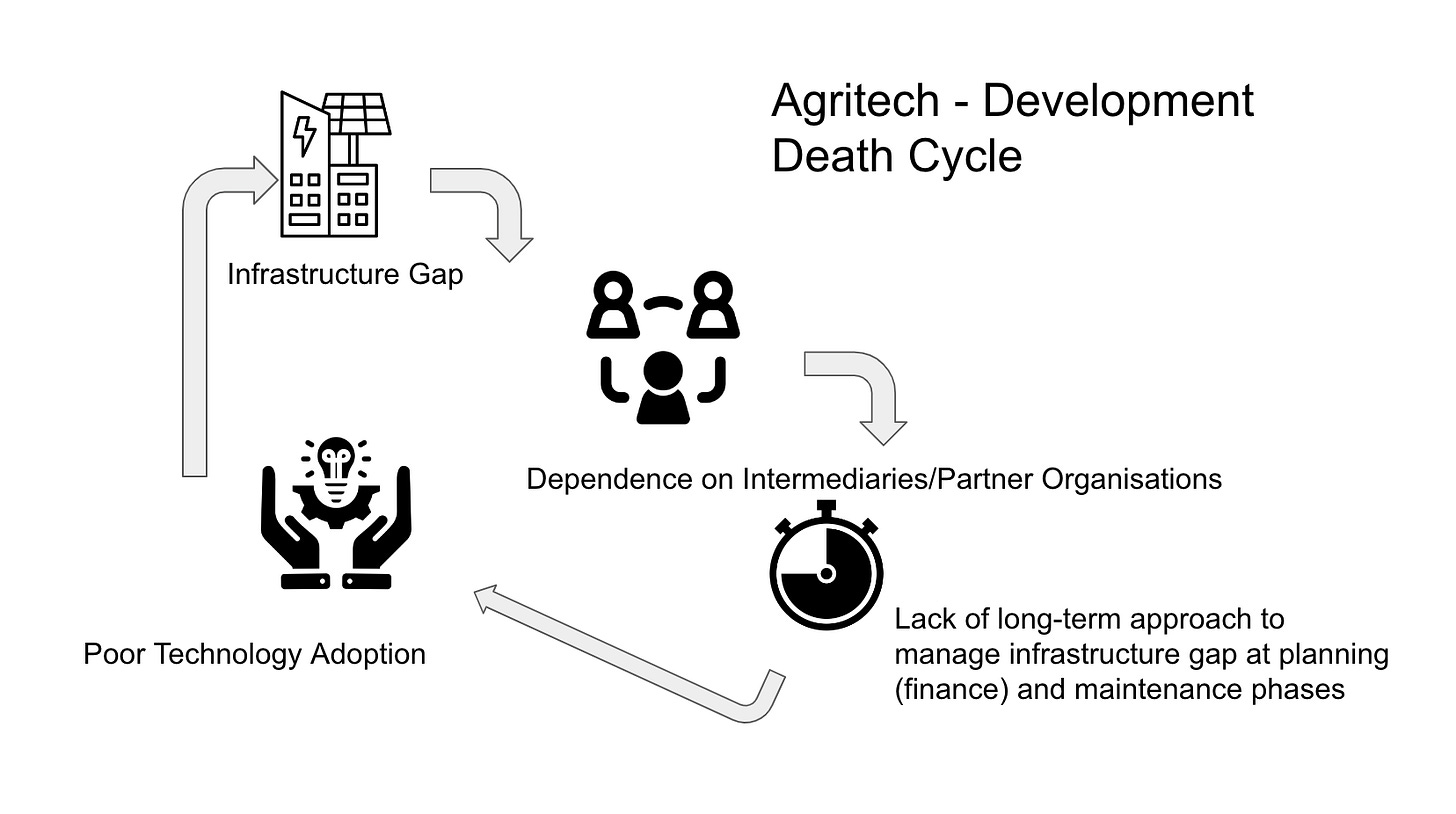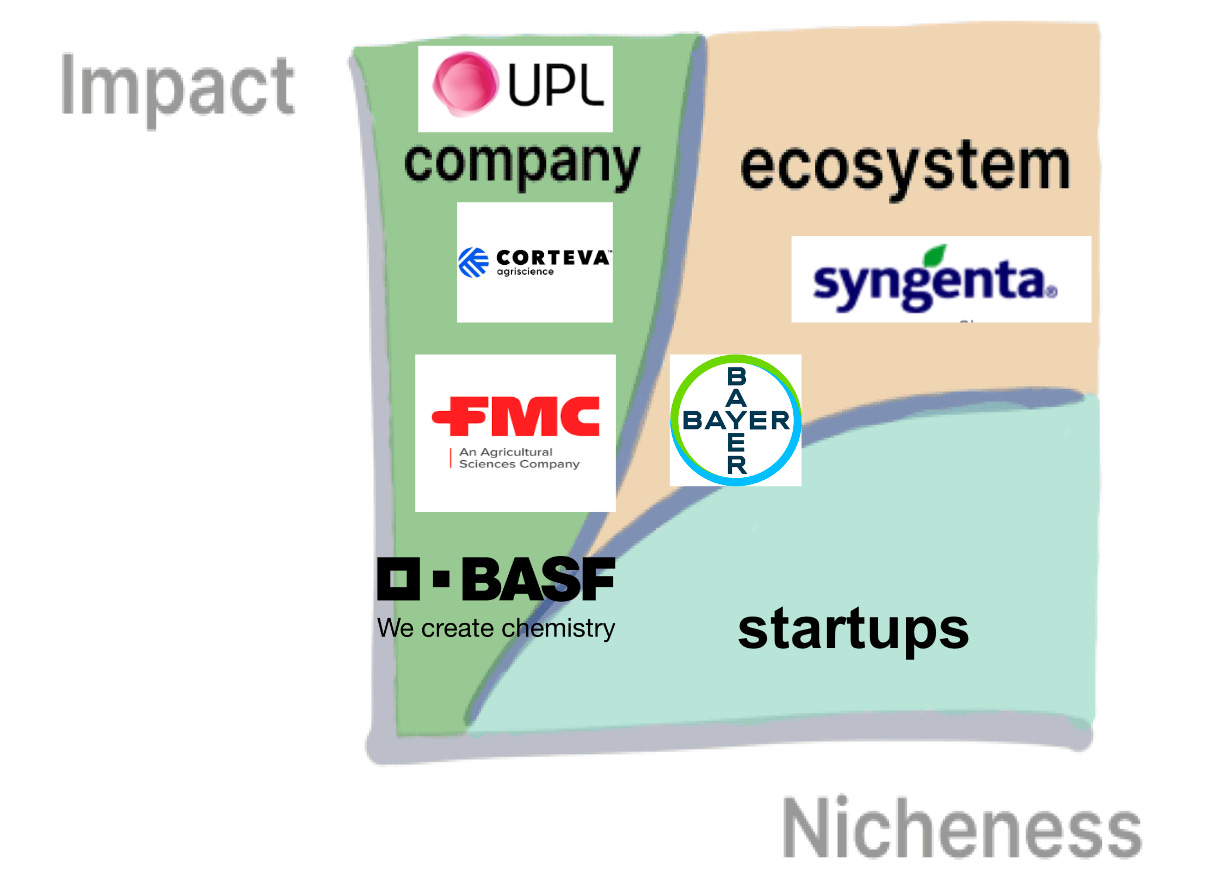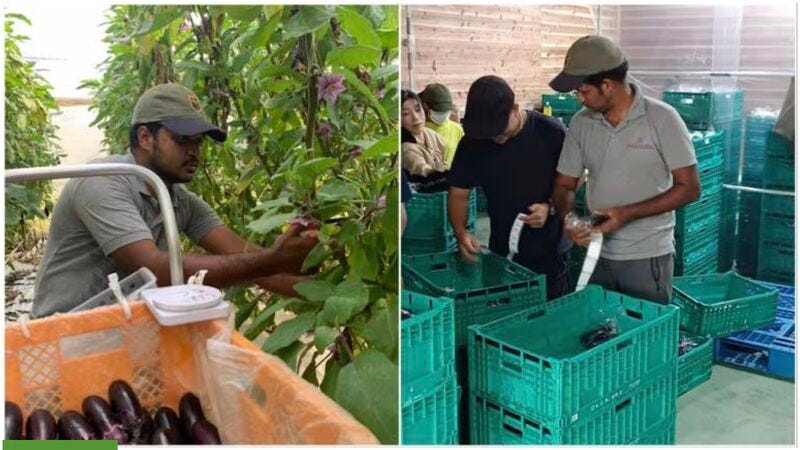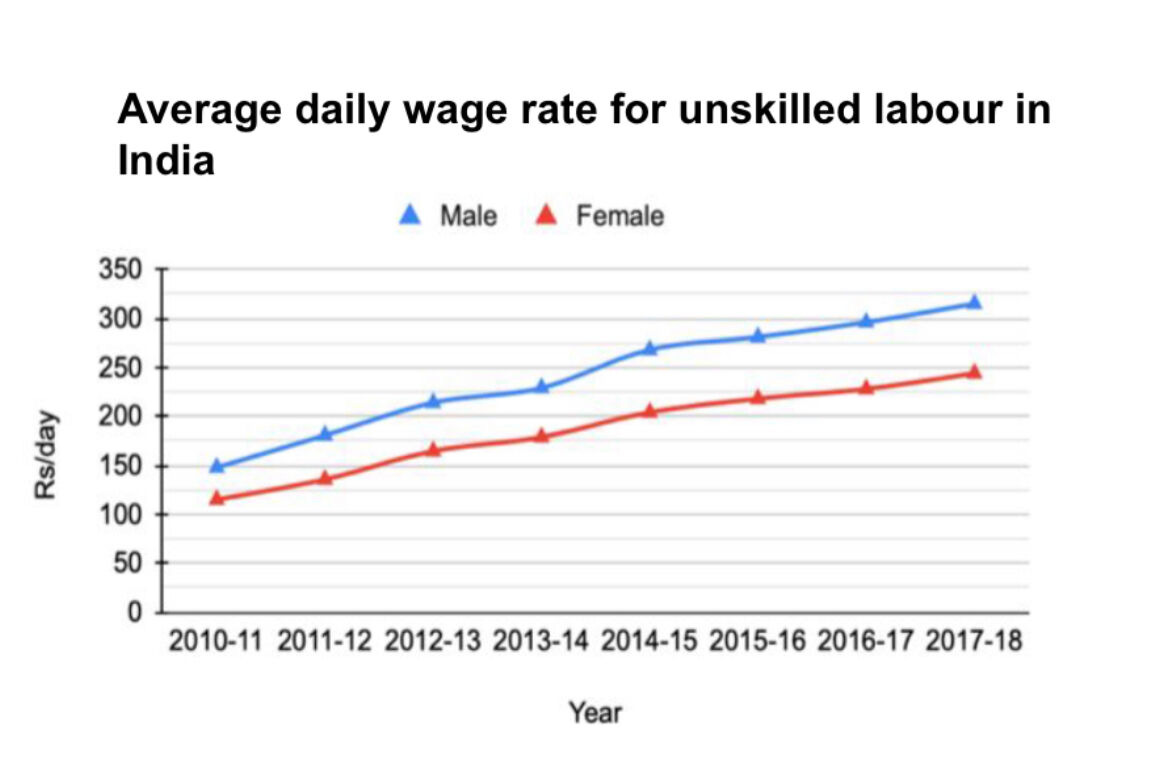Saturday Sprouting Reads (Bayer<>Cargill, Corteva's Roots+,Two Trajectories of the Future of Indian Agriculture)
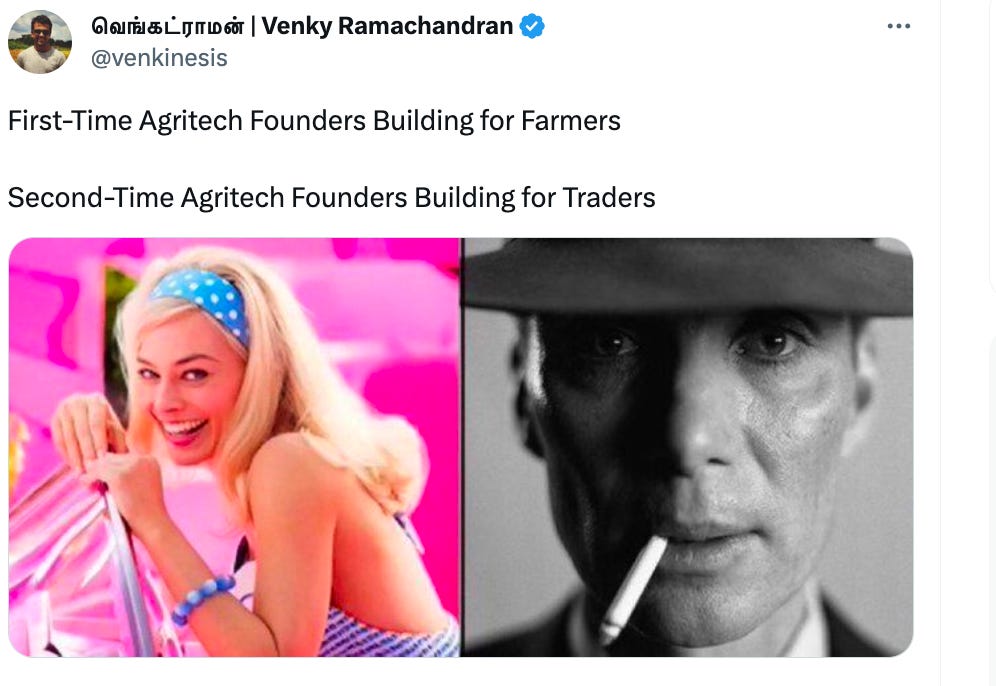
Dear Friends,
Greetings from Hyderabad, India! Welcome to Saturday Sprouting Reads!
About Sprouting Reads
If you've ever grown food in your kitchen garden like me, sooner than later, you would realize the importance of letting seeds germinate. As much as I would like to include sprouting as an essential process for the raw foods that my body loves to experiment with, I am keen to see how this mindful practice could be adapted to the food that my mind consumes.
You see, comprehension is as much biological as digestion is.
And so, once in a while, I want to look at a bunch of articles or reports closely and chew over them. I may or may not have a long-form narrative take on it, but I want to meditate slowly on them so that those among you who are deeply thinking about agriculture could ruminate on them as slowly as wise cows do. Who knows? Perhaps, you may end up seeing them differently.
{Subscriber-Only}When Cargill Met Bayer
If you want to see how to make elephants dance in unison, look no further than the recently announced partnership of Bayer with Cargill. What happens when Cargill sings "Small Holder, Mere Digital Saathi" with Bayer?
(Context for non-Indian Readers: Haathi Mere Saathi happens to be a popular Bollywood number performed by yesteryear superstar of Hindi Cinema Rajesh Khanna)
What happens when Cargill’s Digital Saathi collaborates with Bayer’s “Better Life Farming Centers”?
Couple of weeks ago, I met a UPL SVAL retailer from Eastern Uttar Pradesh who shared critical feedback with me about Bayer’s Better Life Program (lower retailer margins when compared to UPL, lack of understanding of on-ground challenges to deliver agritech services) and gave me a ringside view into the challenges involved in delivering on-ground agritech services to smallholding farmers.
When I look at the challenges on the ground in developing complex partnerships for offering agritech solutions to smallholding farmers, I see a particular pattern.
I call it the Agritech - Development Death Cycle.
More on the Agritech-Development Death Cycle and how to escape this cycle in last week's edition of Agribusiness Matters.
{Blast from the Past}: Leaf Agriculture’s Strategic Gameplay
Reinder Prins wrote recently about enabling agriculture to invert firm
“Inverting the firm, or shifting production from inside the company to ecosystem partners, is a common strategy in many industries where companies are looking to grow rapidly through the network effects of a platform model."
To understand how to shift production from inside the company to ecosystem partners, it is important to understand the Innovate-Leverage-Commoditize lifecycle.
01/ Let’s do a thought experiment: There are two startups A and B. A sells high-end artisan consumer goods. B sells standardized nuts and bolts that go into those consumer goods. If you are a VC who has to invest in either A or B, whom will you bet on?
02/ Of course, it depends. But, if you were to make a calculated bet based on maximal interestingness in the face of uncertainty, I would bet (I am no VC though) on B.
03/ Take the case of Leaf which creates standardized nuts and bolts (Machine Data, Field Boundaries, Imagery, Weather, Soil) for agritech developers to build interesting applications while consuming those nuts and bolts.
04/ What could be their strategic gameplay?
05/ When you are building for the future, there is always lots of uncertainty and you incur huge R&D costs in the process. What is the best way to let others incur that risk and then magically incur that capability?
Hello, Ecosystems!
06/ When you build an industrialized utility - ‘Field boundaries, Machine Operations (OEM Connections, Data Translations), Imagery (Satellite)- with an easy-to-use API, your job is to encourage agritech developers to build on top of your utility.
07/ The more agritech startups you have building on top of your utility, the more interesting use cases emerge outside. When this ideally happens, your ecosystem becomes your sensemaking engine.
In this April’22 subscriber-only post on Leaf Agriculture, I showcase the Innovate-Leverage-Commoditize-life cycle which underpins these models
Inside Corteva’s Roots+
In my earlier Big 6 Agritech Gameplays edition, I categorized Corteva’s agritech focus as inward product-driven company mode (as opposed to outward-customer-driven ecosystem mode), evident when you observe that they are globally taking pains to ensure that their investors get ‘the highest return on R&D’.
“We have the most disciplined and productive R&D organization in the industry, and we intend to keep it that way. We're looking to capitalize on the strengths of our technology solutions in the areas of greatest opportunity on a risk-adjusted basis as long as those opportunities align with our core strategy.” - From Corteva’s Investor Day Presentation.
In which case, it is a welcome move to see Corteva CE launch Roots+, taking their Roots channel relationship program to the next level, suggesting inevitability in the current market conditions to amp up offerings for retailers in an over-leveraged ag retailer agritech landscape. Given Corteva CE is engaged in a PR effort to promote their seed technologies for oil seeds and acclimatize the ecosystem for seed-applied treatment, nurturing the ag retailer ecosystem is critical.
More on Roots+ and what it means for Corteva’s Agritech Gameplay in the latest edition of Agribusiness Matters
Two Trajectories of the Future of Agriculture
Two trajectories of the future of agriculture are currently at play in India: 1) Corporate FPOs (in states like UP, Odisha, West Bengal, Chattisgarh, and Jharkhand) 2) Industrial Agriculture (in states like Telangana, Andhra Pradesh, Maharashtra, Karnataka). Both tracks are expected to evolve in consonance with the dynamics of their respective contexts.
To understand these two trajectories, it is important to ask a question: Do you prefer to be a risk-taking farmer or a risk-averse farm worker?
Few weeks back, the story of a 27-year-old Infosys techie from Tamizhnadu, Vignesh, who left his IT job to become a farmworker on a Brinjal farm in Japan, earning double the salary of what he earned earlier, caught my attention.
"They said there is no money to be made here. And they wanted me to have a stable income," - Vignesh in an interview with Moneycontrol.
How do you have a stable income and pursue your calling in agriculture? You become a farm worker.
With the advent of agritech coupled with land leasing options/ FOCO (Farmer Owned, Company operated), there are now more options for farm workers to get a steady income working as a labourer in large agritech farms/agribusinesses.
In a country like India, farm mechanization adoption is low because farm labor is adequately available and farm wages are on a steady hockey stick rise.
Last week, I spoke with an agritech founder who has been deploying groups of farm labour in his fruit orchard on a monthly basis based on the demand. People prefer these contract jobs as there is steady income during specific harvest seasons.
"The NSSO’s latest annual Periodic Labour Force Survey (PLFS) report for 2021-22 (July-June) shows the farm sector’s share in the country’s employed labour force at 45.5%. That’s down from 46.5% in 2020-21, but still higher than the 2018-19 low of 42.5" - Harish Damodaran
If you have been reading Agribusiness Matters, I have been pointing out how
with the advent of the pandemic, more people are now returning to agriculture, preferring to juggle being farm workers along with working on their farms.
When I look at these data points, the future looks something like this.
In States like Chattisgarh, Uttar Pradesh, Jharkhand, West Bengal, we will see FPOs and Farmers' Collectives as the landholdings will be small and FPOs will scale up their operations, partnering with agribusinesses across the country and the world.
In States like Andhra Pradesh, Karnataka, Telangana, and Maharashtra there will be land consolidation and large-scale farm mechanization adoption will kick in and we can see large-scale industrial agriculture flourishing in these states.
Skilled Farm laborers with agritech experience will be in demand and will be moving across the latter states, or perhaps settling in to have stable salaried income as agritech farm professionals.
So, what do you think?
How happy are you with today’s edition? I would love to get your candid feedback. Your feedback will be anonymous. Two questions. 1 Minute. Thanks.🙏
💗 If you like “Agribusiness Matters”, please click on Like at the bottom and share it with your friend.



